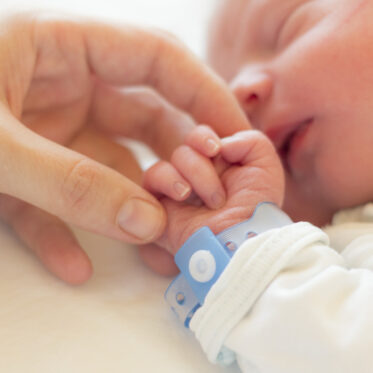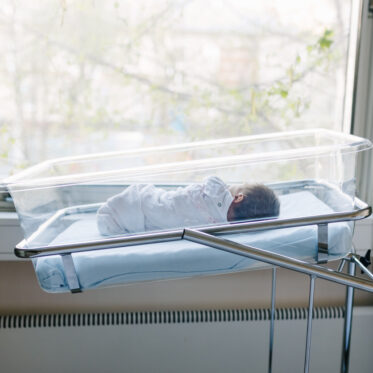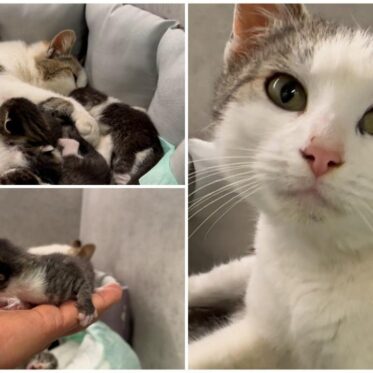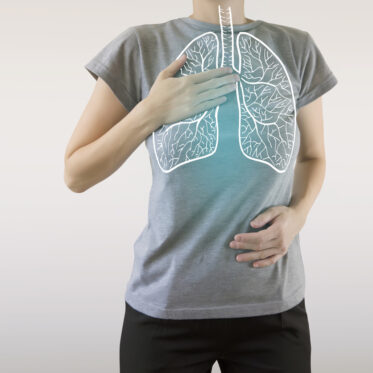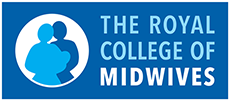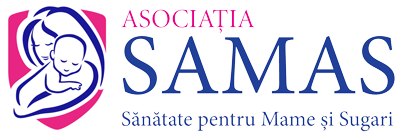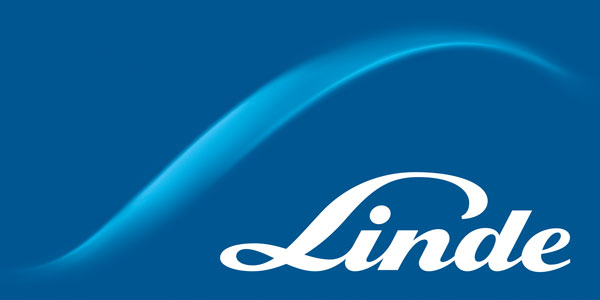Fear of Childbirth: An interview with Astrid Osbourne, Supervisor of Midwives at University College London Hospital
17 Aprilie 2015
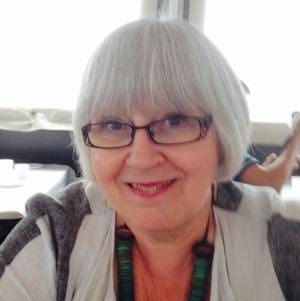 Talking about Fear of Childbirth with Astrid Osbourne, midwives supervisor at University College London Hospital
Talking about Fear of Childbirth with Astrid Osbourne, midwives supervisor at University College London Hospital
Astrid Osbourne is the voice of Britain’s midwives. She became a midwife in 1975, after completing her studies to become a nurse in 1973. Throughout her career, Mrs. Osbourne has been an active player in educating a large number of midwives and future moms towards the benefits of natural childbirth. Currently, Mrs. Osbourne runs a team of midwives at University College London Hospital and also works as a consultant thanks to her extensive experience in this field.
Astrid has agreed to talk to us and answer a few questions about midwifery in Great Britain and about the challenges a nation faces towards developing a greater understanding of how a woman should be treated, helped and supported in adopting a suitable birthplan.
You’ve been a midwife for a very long time, since 1973. Can you tell us something about your experience in this medical field?
I started Midwifery after becoming a nurse as this was the thing to do. I loved midwifery, my Grandmother was a lay midwife and I saw home birth regularly as a little girl and a teenager. So I learned about birth before I had to make an academic commitment to knowing about it . I have never seen birth as a medical event, it is a physiological process that well women need to be supported through. A midwife’s job is to keep birth safe and to know when it is not right and needs help from others. The majority of healthy women do not need medical attention at birth.
I have practiced midwifery as an autonomous practitioner for 40 years. I have looked after hundreds of women and provided all their care. Since 2000 I have been a Consultant Midwife in London, that is an expert in the field of normalizing birth. I have opened, designed and staffed five midwife led birth centers in the London area. I have also set up home birthing services in London. I currently run a fantastic team of midwives who care for anxious and fearful women. I also run the Bloomsbury birth center at University College London.
What are the main reasons that determine a mom-to-be to choose C-section? Can we do something to change that?
This is aided by Media pressure and the false messages that birth is harmful to women, by harming their bodies, making them less perfect, less young and less sexual. Some women have had poor life and previous birth experiences where their expectations are not met and this can be because some bith plans were unrealistic in the first place.
There are also a growing number of older women who are able to delay fertility because they have the technology to birth in their later years. These women bring yet unknown risks to childbirth, we are still gathering information about the implication of this.
Fear of pain is the main and most powerful reason that determines moms-to-be to choose C-section. Is it that terrible? What are the pain release methods that you can recommend? What works best?
Pain relief is available in all maternity units in the UK. We offer everything except epidural in our birth centers and midwives can administer agreed drugs and Entonox without a Doctor to prescribe. Many women in birth centers and at home have nothing, but between 80 and 90% of women birthing naturally choose Entonox, it is easy to use, none accumulative and not harmful to the baby. We can also use it in the birthing pools and at home births which makes it so useful.
How can we combat the beliefs regarding the advantages of C-section? Like: “there is no damage to my vagina”, “less painful”, “the baby is safer”, “it’s faster” …
This is a huge social dilemma that I believe is linked to medicalised birth and especially where midwifery care is not feely available. Drs do not want to spend endless hours supporting women in labour and the cost of CS is over twice that of normal birth so it is lucrative to them to have women and insurance companies doing this. There is a very unhealthy politicization of birth and until other countries take up the same standards as the Uk in adhering to scientific evidence in health care, unscrupulous people will do these things and get away with it. Obstetric Drs in the UK are respected but they are not ‘gods’, I think they are seen as such in many European countries and do exactly as they like. Obstetric Drs in the UK follow strict national professional guidelines as do midwives, this standardizes the care and makes science the tool that guides us all and we are individually held accountable for our practice.
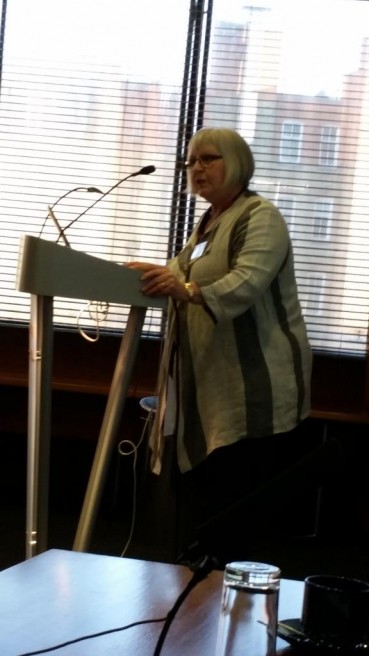 What can you tell us about tocophobia? Can a woman suffering from it conquer her fear?
What can you tell us about tocophobia? Can a woman suffering from it conquer her fear?
Yes I have a 65% turn around for fearful women when they have the correct care and continuity with practitioners that they trust. My team of 5 Mws attends 12 women per month at vaginal birth when the women had first decided on CS. Having a caring and supportive MW makes all the difference. We provide complete antenatal care for 40 women per week.
What do you do, practically, to help women conquer their fear of birth as a midwife?
I work with a developed care pathway that I have devised over the past 3 years. I am lucky because I work with 3 perinatal psychologists who help me to plan birth for the women and work with the women to understand and deal with their fear. I also have access to a birth injury clinic for women who have birthed before and have not healed well.
Can you give us an example of a perfect birth plan?
Yes I will give you an actual plan used recently:
Birth plan – HM
This is our third child – tragically our son died in December 10 from a rare cancer after 4 months in hospital and we are heartbroken. We need our team to be sensitive to this and to be aware that we are very anxious to take no risks and have this baby safe in our arms. We have had consultant led care and a consultant midwife throughout this pregnancy as well as counselling via UCH service.
Birthing Centre or Delivery Suite
- Astrid Osborne is our consultant midwife and will be liaising with labour ward on our behalf and advising the staff of our particular circumstances in advance. She will lead our care.
- We would like to use room 5 of the delivery suite Labour ward as this will allow me to use a pool and mobile monitoring which would balance well with my preferred use of water during labour whilst allowing sufficient monitoring.
- My partner M will be with me during labour
- We don’t want students in the labour room as we don’t want too many people there if not necessary.
Moving around in labour
- We would want to be able to use cushions and a birthing ball during labour
- I would prefer to be mobile as this has worked best for me in the past and I would want to have the option of a mobile epidural if possible or use gas and air [Entonox] at any time if I ask for it.
Observation of yourself and your baby
- We feel very cautious about the birth of our baby and would follow medical advice. This is why we felt room 5 would be ideal for us as it would allow close monitoring as well as using the pool and being more mobile
- I have never really wanted to eat when in active labour
Ways of coping with pain
- I plan to use relaxation and beathing techniques that I have learnt at my antenatal yoga class and employed in previous labours.
- I would definitely want to use gas and air and tens
- I would always want to keep open the option of further pain relief such as diamorphine or an epidural.
- I have a high pain threshold and this has been the case in both my previous labours so if I am asking for pain relief it is because I really need it!
Options for birth
- I would use kneeling/squatting etc as appropriate
- I would like the option of a waterbirth
- I would like skin to skin contact straight away or if not me my partner M
- We would want staff to cut the cord and the injection for placenta delivery
After the birth
- I would want her handed straightaway to me for skin to skin contact
- I plan to breast feed
- The baby can have vitamin K via injection
We rarely hear that a baby or a mom giving birth was saved by a midwife, we hear about paramedics, obstetricians, surgeons. Why should women believe that midwives are really a good deal?
We deal with healthy women and physiological birth, our death rate is almost obsolete. Drs look after sick people and that should include women with medical problems in pregnancy like diabetes, heart conditions etc,.Paramedics respond only to emergency situations, we rarely interface with them. It is not our particular domain;, pregnant women are NOT ILL unless they have a particular medical problem as well.
In the UK a third of all pregnant women never see a doctor at all and this is because they are healthy and have a physiological pregnancy with no complications. It is our job to know when things deviate from the normal course and to refer on to the appropriate medical care. That is how we contribute to saving women’s lives, but do not forget that medicalisation can also bring Iatrogenisis to women so we need to be mindful that over medicalisation can also cause harm. Midwives are at the least sexy end of care, the patient supporting time consuming part of care, it doesn’t make the headlines but it should.
Over the years, what is the most significant progress that you could observe in childbirth in UK?
I have had 40years of trying to convince my medical colleagues that we are not a threat to them and can work in perfect partnership and harmony with them, we are both needed. I would love to say that progress is complete but alas it is not. However, government policy looks at the evidence and we are safe practitioners, look at the Birthplace study 2011, this proves what MWs can do. As a consultant midwife in the UK I am empowered to stand alongside my obstetric colleagues and we are given equal status, this makes a difference to the way that our profession is treated. We are not inferior to doctors we are equal but have a different role to play.
If a pregnant woman tells you that she wants a C-section, how would you convince her otherwise? What if she tells you that her first birth was through C-section and it was ok for her and the baby?
My team and I always tell the truth. There is much we have to find out about the disadvantages of CS for the infant as well as women. It is major abdominal surgery with months of recovery. An increased risk of blood loss and poor healing. The baby has an increased risk of going to the neonatal unit if the CS is elective. We look at the pros and cons of vaginal and CS birth and the truth is no one can predict the future, but we can support women to help their bodies to work for them. We advocate hypnobirthing and yoga and we can use acupuncture in labour. We are all trained to do that. Birth is a spiritual event and when you bring that back to women they start to respond. CS is a wonderful tool when needed, so we make that clear, it is the ‘need’ that is in question for these women. Women who have had a previous Cs are our specialty; we support vaginal birth after CS.
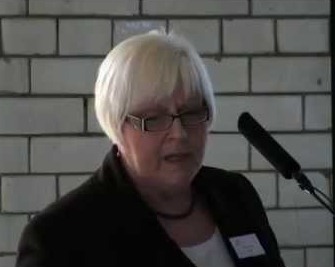 What do you think about natural birth with inhalation analgesia with eqimolecular mixture of nirous oxide an oxygen? This is a new method of analgesia in Romania (in 2014 was introduced in some hospitals) whereof the Romanian women do not know very much things. What are the advantages and disadvantages of this method?
What do you think about natural birth with inhalation analgesia with eqimolecular mixture of nirous oxide an oxygen? This is a new method of analgesia in Romania (in 2014 was introduced in some hospitals) whereof the Romanian women do not know very much things. What are the advantages and disadvantages of this method?
There are no disadvantages for Entonox use. It aids normal birth! A very small number of women don’t like it but that is small and the vast majority love it. It is quick, easy to use and has a short effect, not accumulative and does not affect the baby. It could not aid us more; we use it in any stage of labour, while walking about and in the pool. In our birth center most women use it and nothing else.
Finally, what is your advice for the mothers-to-be from Romania, where the C-section rate is very high? What should they do to convince themselves that a natural child birth is the best way?
A large number of Romanian women could have safe care by a midwife and natural birth as appropriate. Start by empowering the midwives, let them run midwife led clinics, we have good national guidelines, don’t reinvent the wheel, look at what works for us with a long tradition of midwife care. Provide good quality education for women and midwives and empathetic care in partnership with women. Help women to understand their bodies and how it works. Make birth the wonderful occasion it really is. I have supported 3fearful women to births this week , one was a woman who has a previous emergency CS and was very traumatized, she had a wonderful 5 hour labour with Entonox and a great birth. She felt healed and restored.
Obstetricians need to be discouraged from practice that is not evidence based and to work in partnership with women and midwives. No one can work in isolation. Money should not be a driver to keep the CS rate high! This disadvantages women and babies.

